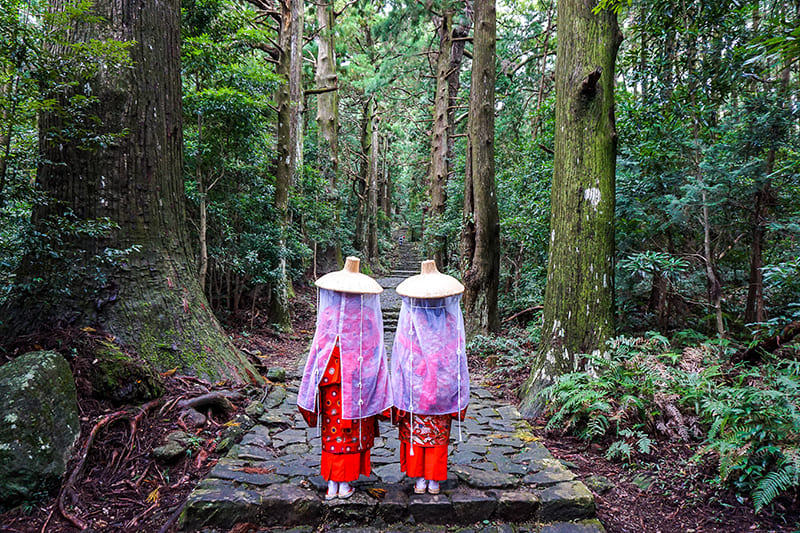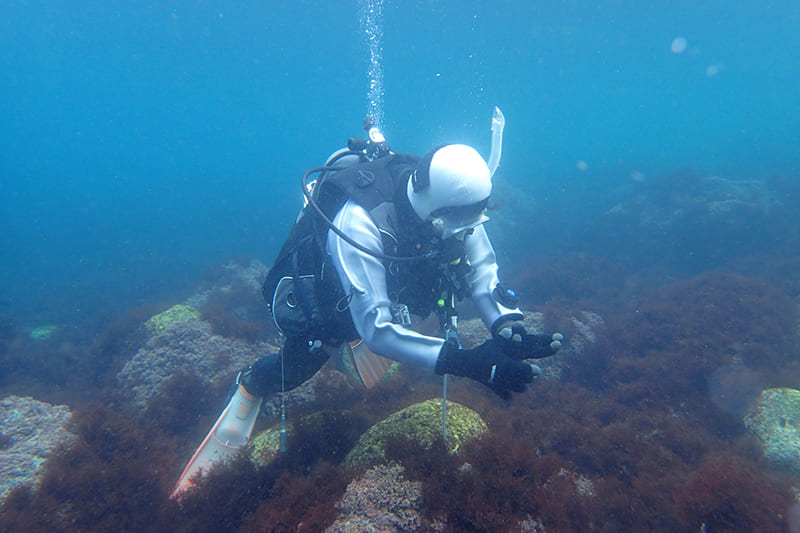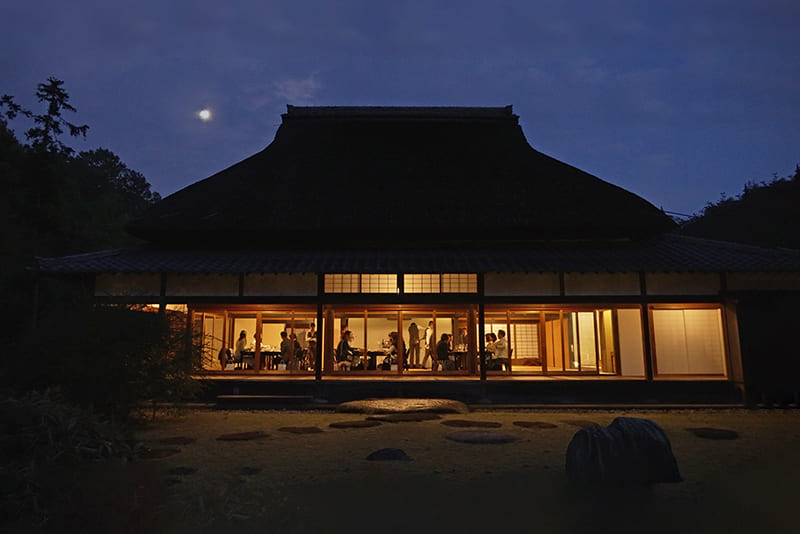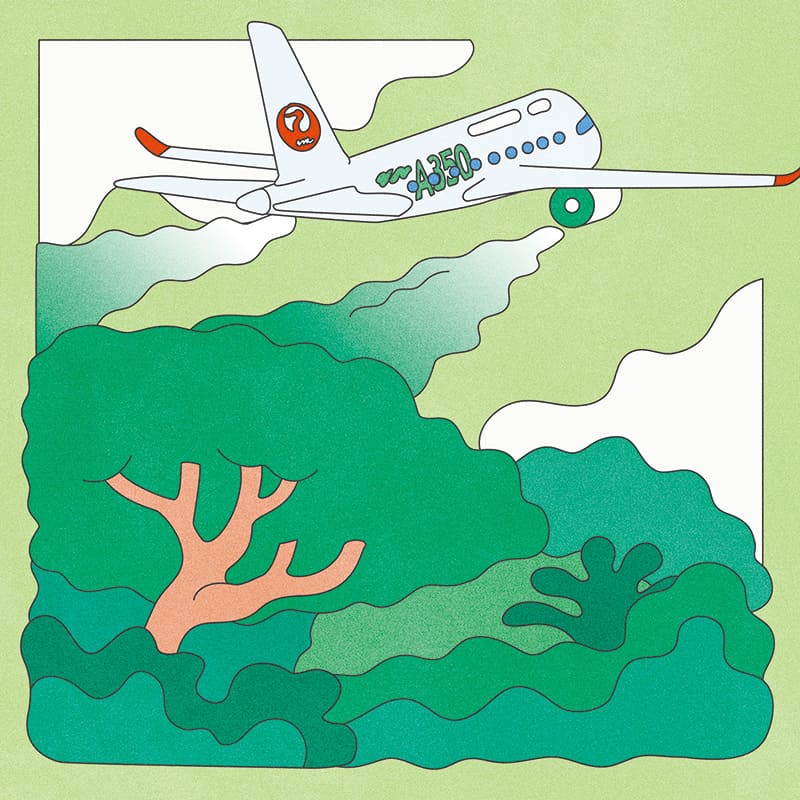July 26, 2024
JNTO promotes sustainable tourism initiatives

https://www.japan.travel/en/experiences-in-japan/
COURTESY: JNTO
Interest in sustainable tourism has gained particular global traction as the atmosphere surrounding tourism has changed since the coronavirus pandemic, and the Japan National Tourism Organization is working to make it achievable.
The World Tourist Organization defines sustainable tourism as “tourism that takes full account of its current and future economic, social and environmental impacts, addressing the needs of visitors, the industry, the environment and host communities.”
Based on this, JNTO is working on a variety of initiatives to promote tourism that is sustainable, protecting and cultivating regional environments, cultures and economies, yet presents growth potential. The organization hopes travelers, tourism-related businesses and host communities can come together to protect local people’s ways of life and ensure that an area’s natural environment, traditions and culture are handed down to future generations. To achieve this, JNTO sees the provision and distribution of information as vital.
Adding to this, the Japan Sustainability Coordinator Association has been launched by Green Destinations Japan, a representative of the global organization Green Destinations that provides services related to international certification and awards and conducts promotional activities.
JNTO itself established the cross-functional Sustainable Tourism Promotion Headquarters in 2022, a body that has undertaken a raft of initiatives. Its work includes disseminating the “stories” of regions that have international certification for sustainable tourism or are licensed to use the Japan Sustainable Tourism Standard for Destinations (JSTS-D) logo.
JNTO believes Japan’s abundant natural wonders and diverse cultures rooted in nature are unique. Each region has its own traditions, craftsmanship and food nurtured since ancient times. By communicating all this to a global audience and inviting sustainable travel that enables people to authentically experience regions and communities, it aims to contribute to the preservation of local culture.
Let’s take as an example Miyoshi, a Tokushima city that was selected in the Green Destinations Top 100 Stories competition in 2023. The Kazurabashi vine bridge in Iya Valley, visited by about 350,000 tourists a year, is a designated Important Tangible Folk Cultural Property, considered one of Japan’s three most unusual bridges. It is rebuilt by hand every three years using traditional methods and using natural materials. In recent years, it has become harder to get hold of the perennial vine used for the bridge, sarunashi (Actinidia arguta, hardy kiwi). So Miyoshi teamed up with the District Forest Office to support forest culture and secure the supply of vines. The tie-up’s various sustainability initiatives, like tree planting with local children, have been recognized as good practices. This is not only attractive in terms of tourism, it is also important in terms of the way efforts are being made to achieve sustainability, including the future-forward development of human resources.
To make sustainable tourism a reality, it is important to change the mindsets of not only the people living in tourist areas but also of the tourists themselves, JNTO says. The organization operates a website called Be a More Responsible Traveler carrying tips for responsible tourism. Under the banner “Respect, Connect, Enjoy,” JNTO suggests “10 ways to travel responsibly in Japan,” including honoring Japan’s rich natural environment, tasting seasonal marine and mountain delicacies, staying in historic buildings, immersing oneself in Japanese culture with traditional festivals and performing arts, and supporting local artisans.
With more tourists now wanting to spend quality time in places that are not popular destinations and enjoy authentic experiences and food that can only be found in a particular area, we should pay attention to that message from JNTO, a key promoter of sustainable tourism in Japan.

https://www.japan.travel/en/sustainable/
COURTESY: JNTO
JNTOが推進するサステナブル・ツーリズム。
今「サステナブル・ツーリズム」推進に取り組むのが、JNTO(日本政府観光局)だ。
UN Tourism(世界観光機関)は、サステナブル・ツーリズムを『訪問客、産業、環境、受け入れ地域の需要に適合しつつ、現在と未来の環境、社会文化、経済への影響に十分配慮した観光』と定義している。
「JNTOもそれに基づき、地域の《環境》《文化》《経済》を守り育むサステナブルで発展性のある観光を推進するための取り組みをしています。旅行者と観光関係事業者、そして受け入れ地域が一体となり、地域の人々の生活を守りつつ、自然や伝統、文化をしっかりと継承し将来につなげていく。そのための情報発信が非常に重要だと考えています」とJNTOは解説する。
JNTOは2022年に部署横断の〈サステナブル・ツーリズム推進本部〉を設置。持続可能な観光に関する国際認証受賞地域や、「日本版持続可能な観光ガイドライン(JSTS-D)」のロゴマーク使用承諾地域について、世界中に発信している。
Return to Sustainable Japan Magazine Vol. 38 article list page


















